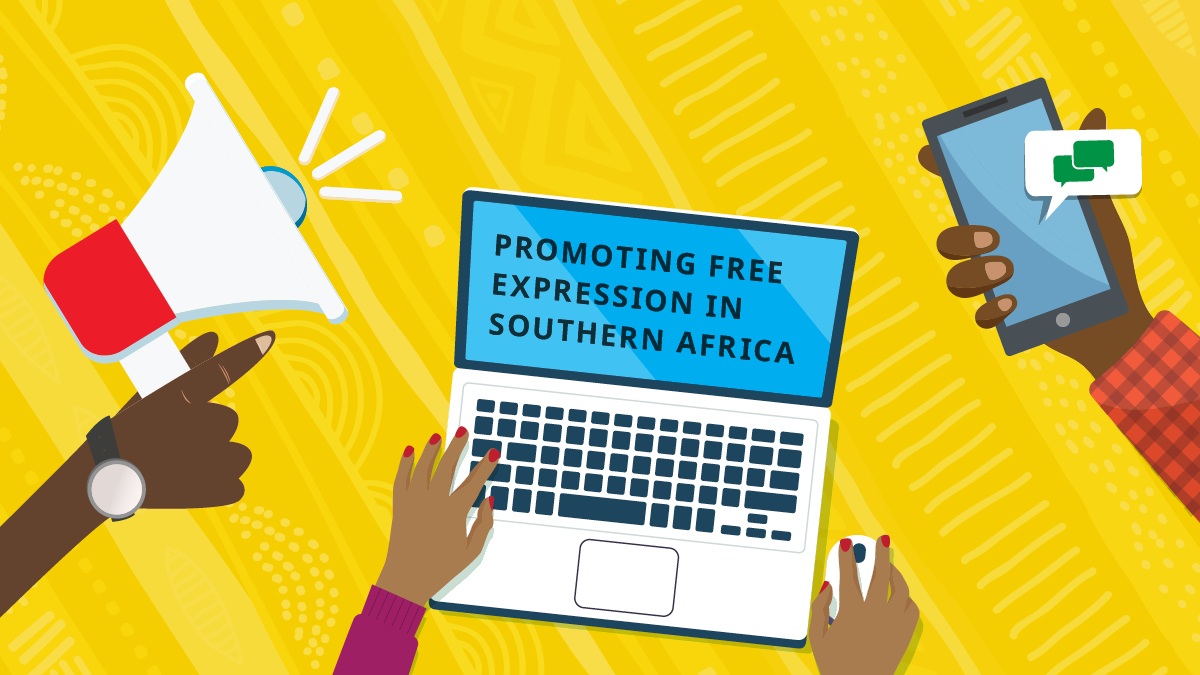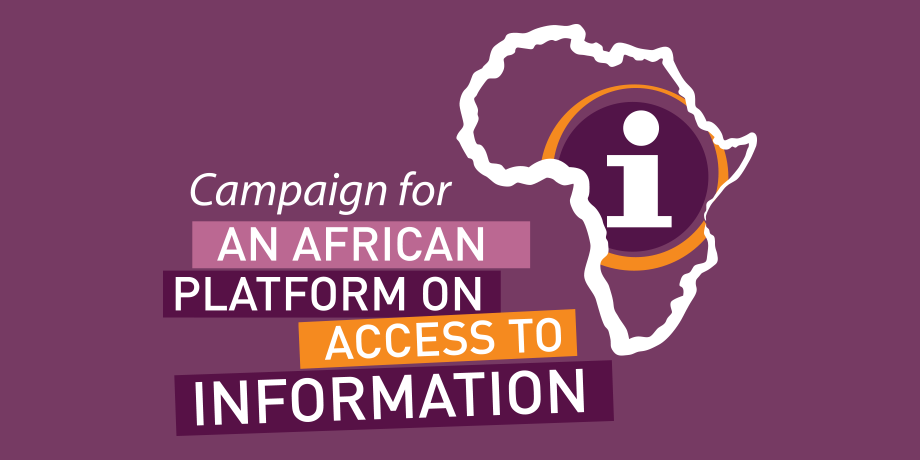Access to information
While other countries in the world aim to reach the moon, we must aim – for the time being at any rate – to reach the villages by providing them with necessary information.
Mwalimu Julius Nyerere, 1967
Access to information, freedom of information, the right to know, the right to information. All these terms point to the same idea – making information held by public and, in some cases, private institutions available and accessible to citizens.
Tanzania passed the Access to Information Act into law in September 2016.
Why is access to information important?
Because it helps citizens:
Fight corruption
You can’t question what you don’t know. Greater access to information increases the transparency of policy making and governance.
Communities need to establish systems of public accountability. Public officials need to answer to voters for their performance while in office (the right to know how elected officials are exercising power). Voters need information and analysis so that they are able to assess the performance of officials. For instance, the public needs to question how tax-payers’ money is being spent.
Participate in democracy
The more informed citizens are, the more effectively they can participate in their nation’s democratic processes.
Communities need to coordinate. Activities like elections, emergency responses and even community celebrations succeed only if the community knows where to be, at what time and what role to play. This requires a system of information and exchange. Information is also the central resource in enabling the creation of economic and social connections that build a community’s capacity for action.
Access other social and economic rights
As far back as 1946, the United Nations described access to information as the cornerstone of all freedoms because you need information to exercise other crucial rights such as the right to vote, the right to a clean and healthy environment and the right to make informed choices.
Communities need to develop a sense of connectedness. They need to circulate ideas, symbols, facts and perspectives in a way that they develop a shared narrative where everyone is relevant and fits in. a community’s system of meaning evolves as new voices and new experiences enter the information flow. People need access to information to avoid feeling alienated or excluded.
Access education and build capacity
An informed population can better its situation by converting information into knowledge. To do this, citizens need information literacy skills so they can distinguish between: information and disinformation; public and private information; and what is ethical and what is not.
Communities need to solve problems. They must identify goals, challenges, and options for response on anything from building the local economy, to improving the performance of community schools, to protecting health and safety and combating hunger.
Correct misinformation
When citizens can see what information government holds about them, they can also seek correction of that information if they consider it wrong or misleading.
African Platform on Access to Information
MISA is the secretariat of the African Platform on Access to Information (APAI) working group, which in 2011, lead to the adoption of Africa’s first declaration on access to information.
The APAI declaration was adopted at the Pan African Conference on Access to Information (PACAI) on 19 September 2011, held in Cape Town, South Africa, upon a motion for adoption moved by Advocate Pansy Tlakula, Special Rapporteur on Freedom of Expression and Access to Information of the African Commission on Human and People’s Rights and seconded by Honourable Norris Tweah, Deputy Minister of Information, Culture and Tourism for the Republic of Liberia.
The document lists 14 key principles that aim to advance the right to access to information in all its dimensions, nationally, regionally, and internationally.
Key Principles of Access to Information as outlined in the APAI Declaration
- Fundamental Right Accessible to Everyone. Access to information is a fundamental human right, in accordance with Article 9 of the African Charter on Human and Peoples’ Rights. It is open to everyone, and no one should be privileged or prejudiced in the exercise of this right on account of belonging to a class or group howsoever defined, and whether in terms of gender, class, race, political association, occupation, sexual orientation, age, nationality, HIV status, and other bases as cited in many African constitutions. It is not required that anyone must demonstrate a specific legal or personal interest in the information requested or sought or otherwise required to provide justification for seeking access to the information.
- Maximum Disclosure. The presumption is that all information held by public bodies is public and as such should be subject to disclosure. Only in limited circumstances set out in these principles below may disclosure be denied.
- Established in Law. The right of access to information shall be established by law in each African country. Such law shall be binding and enforceable and based on the principle of maximum disclosure. The law shall take precedence over other conflicting laws that limit access to information.
- Applies to Public Bodies and Private Bodies. The obligations of ATI shall apply to all public bodies, as well as to private bodies that are owned or controlled by the government, utilise public funds, perform functions or provide services on behalf of public institutions, or have exclusive contracts to exploit natural resources (with regards to said funds, functions, services or resources), or which are in possession of information which is of significant public interest due to its relation to the protection of human rights, the environment or public health and safety, or to the exposure of corruption or illegal actions or where the release of the information may assist in exercising or protecting any right.
- Clear and Unambiguous Process. The law shall include procedures for the exercise of the right. The process to obtain information should be simple and fast and take advantage of new information and communication technologies where possible. Bodies falling under the scope of the ATI law should provide assistance to requesters in order to ensure that they receive the information they need. The information should be provided in a form understandable to the requestor. Information should be disclosed within a clear and reasonable deadline provided for by law. It should be available at low or no cost.
- Obligation to Publish Information. Public and relevant private bodies shall be obliged to proactively release information in a timely manner about their functions, powers, structures, officials, decisions, expenditures, budgets, and other information relating to their activities that is of public interest. The dissemination should use all reasonable means of communications, including ICTs, to maximise access to all communities and sectors of society.
- Language and Accessibility. To the greatest extent possible, information should be available in the language of the person seeking it, in an accessible location, in a format that is as accessible as possible, and, in particular, ensures that it is accessible to those who may be particularly affected by the subject matter of the information.
- Limited Exemptions. The right of access to information shall only be limited by provisions expressly provided for in the law. Those exemptions should be strictly defined and the withholding of information should only be allowed if the body can demonstrate that there would be a significant harm if the information is released and that the public interest in withholding the information is clearly shown to be greater than the public interest in disclosure. Information can only be withheld for the period that the harm would occur. No information relating to human rights abuses or imminent dangers to public health, environment, or safety may be withheld.
- Oversight Bodies. Independent bodies such as an ombudsperson or information commissioner should be established to monitor and hold government bodies and relevant private entities to account on their access to information disclosure practices, to receive and decide upon complaints, and generally oversee the implementation of the access to information legislation. The oversight body should be adequately funded.
- Right to Personal Data. All persons have a right to access and correct their personal data held by third parties.
- Whistleblower Protection. To ensure the free flow of information in the public interest, adequate protections against legal, administrative and employment-related sanctions should be provided for those who disclose information on wrong-doing and other information in the public interest.
- Right of Appeal. Everyone has a right to appeal administratively any action that hinders or denies access to information or any failure to proactively disclose information. They have a right to further appeal to an independent body and to finally seek judicial review of all limits of their right of access to information.
- Duty to Collect and Manage Information. Public and relevant private bodies have a duty to collect information on their operations and activities on behalf of their citizens. They also have a duty to respect minimum standards in relation to the management of this information to ensure that it may easily be made accessible to citizens.
- Duty to Fully Implement. Public and relevant private bodies have an obligation to ensure the law is fully implemented. This includes internal procedures and processes and the designation of responsible officials.
Research and publications
- Government Secrecy in an Information Age. MISA’s annual research report examining the openness and secretiveness of public institutions
- Access to Information in Africa: Examining progress since the APAI Declaration
- State of Right to Information in Africa Report 2017 (contributions from MISA Tanzania)
Right to Know Day
MISA Tanzania marks International Right to Know Day on September 28 each year by launching its annual report, Government Secrecy in an Information Age, which analyses the openness and secretiveness of public institutions in Tanzania.
On the day, it also presents the Golden Key and Golden Padlock awards to the “Most Open” and “Most Secretive” public institutions as determined by the research.
Access to information news from our chapters
Access to information: An enabling and fundamental human right
The African Platform on Access to Information (APAI) Declaration of September 2011 is a regional instrument that looks at access to information in its entirety, as a right that furthers development in various spheres, and is relevant to numerous sectors and society at...
‘ATI ACT of 2016 operational since July 2017’, says Government Spokesperson
Saturday, March 10 The Access to Information (ATI) Act of 2016 became operational since July 1st 2017 according to Dr Hassan Abbas, Government Spokesperson and Director of Tanzania Information Services. Speaking on Saturday, March 10 during the access to information...
MISA Tanzania awards Golden Key to most open public institution
MISA Tanzania and Access to Information stakeholders, under the Coalition of Right to Information (CoRI), on Thursday, September 28 held a national event in Dar es Salaam to commemorate the International Day for Universal Access to Information. The event took take...





